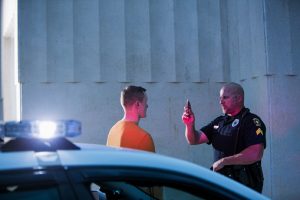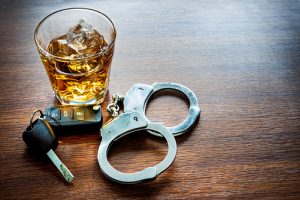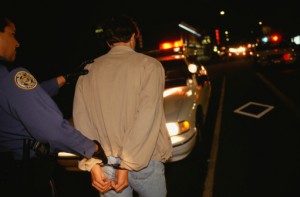Expert Witnesses and Criminal Defense Trials
 In a drunk driving trial or other criminal case, expert witnesses may testify for the prosecution or for the defense. For example, you may present expert witnesses who will testify about problems with the sobriety tests, while prosecutors may present expert testimony about levels of impairment or accident reconstruction.
In a drunk driving trial or other criminal case, expert witnesses may testify for the prosecution or for the defense. For example, you may present expert witnesses who will testify about problems with the sobriety tests, while prosecutors may present expert testimony about levels of impairment or accident reconstruction.
Unfortunately, as a recent article from the National College of DUI Defense (NCDD) made clear, these “expert” witnesses may not actually be experts after all. Furthermore, there may be situations where experts cannot be sued by people whose lives they ruin even if they provide false or inaccurate testimony.
When you are charged with a crime, your fate may hinge on these experts. You need a criminal defense lawyer to help you put together a strong case and to raise any necessary questions about the qualifications of prosecutor’s witnesses.
Problems with Rules for Expert Witnesses
The NCDD reported multiple situations where expert witnesses may have provided incorrect or inaccurate information in trial. These included an expert witness from the O.J. Simpson trial; a state toxicologist who was convicted of perjury and who may have falsified lab reports leading to as many as 134 wrongful convictions; and a toxicologist who ran more than 34,000 labs in Massachusetts and who pleaded guilty to crimes related to falsifying reports.
These stories were described as being only the “recent ones,” and “only the tip of the iceberg.” Unfortunately, when a toxicologist is caught falsifying lab reports or lying to obtain a conviction, nothing bad generally happens to the person. In fact, just recently, a Court of Appeals in Ohio ruled that a state toxicologist could not be sued or found liable for false testimony in a murder case even though the judge relied on his testimony for the conviction and even though he had been convicted of perjury.
The Court of Appeals opinion states that the witness “deserves absolute immunity in the case because all testimony, even if perjured, is protected to ensure witnesses will be candid without fearing lawsuit.” The absolute immunity, even for dishonest testimony, applies to government witnesses.
The NCDD believes that problems with expert witnesses start well before a potential perjury conviction. Often, no one cares enough to check whether the witness has the qualifications that are claimed. For example, the witness who was recently given immunity for his false testimony had claimed to be a doctor but he really did not even have a master’s degree and it is unclear whether he even had an undergraduate degree. University records showing how he may have been able to obtain the degree are missing.
Problems like this undermine faith in the criminal justice system, as they should, and thus are whitewashed. Prosecutors care about their conviction record and may not have a lot of incentive to look too deeply into the expert witnesses on their side.
All of this points to serious problems in the criminal justice system that make it hard for defendants to get the fair trial they deserve.
Call Joseph LaBella & Associates today at 800-395-5951 or visit http://www.texas-dwi-lawyers.com/ to speak with a Houston DUI defense lawyer.





 More than 1.2 million people were arrested for driving under the influence in 2011, according to the
More than 1.2 million people were arrested for driving under the influence in 2011, according to the  A Texas resident was recently pulled over for a traffic violation, with some reports indicating he ran a red light and other reports indicating he had run a stop sign. When the driver was pulled over, field sobriety tests were administered to determine if he was impaired. The Austin Police Department indicates that the Texas man “swayed,” and “needed his arms for balance,” which were signs of potential impairment caused by either alcohol or drugs.
A Texas resident was recently pulled over for a traffic violation, with some reports indicating he ran a red light and other reports indicating he had run a stop sign. When the driver was pulled over, field sobriety tests were administered to determine if he was impaired. The Austin Police Department indicates that the Texas man “swayed,” and “needed his arms for balance,” which were signs of potential impairment caused by either alcohol or drugs. In January 2012, police arrested a man for aggravated trafficking of scheduled drugs. The defendant was convicted and sentenced to seven years of incarceration. This conviction has now been overturned. The reason a judge overturned it: the man did not actually have any scheduled drugs in his possession.
In January 2012, police arrested a man for aggravated trafficking of scheduled drugs. The defendant was convicted and sentenced to seven years of incarceration. This conviction has now been overturned. The reason a judge overturned it: the man did not actually have any scheduled drugs in his possession. The Texas appellate court recently reviewed trial court proceedings that had resulted in the conviction of an alleged drunk driver. The defendant was convicted of a misdemeanor offense and was given a suspended sentence of 180 days in jail and a $500 fine. The defendant appealed and argued that the trial court judge was biased yet refused a request for recusal. The appeal also argued that the trial court abused its discretion by denying challenges for cause against several jury members.
The Texas appellate court recently reviewed trial court proceedings that had resulted in the conviction of an alleged drunk driver. The defendant was convicted of a misdemeanor offense and was given a suspended sentence of 180 days in jail and a $500 fine. The defendant appealed and argued that the trial court judge was biased yet refused a request for recusal. The appeal also argued that the trial court abused its discretion by denying challenges for cause against several jury members. Certain drug crimes are illegal under both state and federal law and if you break the laws on controlled substances, you could find yourself in federal court. Many federal drug offenses carry minimum sentences as a result of a wave of “tough-on-crime” laws passed during the 1980’s and these minimum sentences can result in lengthy terms of incarceration.
Certain drug crimes are illegal under both state and federal law and if you break the laws on controlled substances, you could find yourself in federal court. Many federal drug offenses carry minimum sentences as a result of a wave of “tough-on-crime” laws passed during the 1980’s and these minimum sentences can result in lengthy terms of incarceration.
 Any
Any  Three drivers who caused fatal accidents while intoxicated are currently pursuing a novel defense in an effort to have their second-degree murder convictions overturned. According to the
Three drivers who caused fatal accidents while intoxicated are currently pursuing a novel defense in an effort to have their second-degree murder convictions overturned. According to the  In early September, a three-minute video was posted on YouTube in which a 22-year-old young man confessed to driving drunk and killing a man. The video quickly went viral and has been viewed more than 1.9 million times according to
In early September, a three-minute video was posted on YouTube in which a 22-year-old young man confessed to driving drunk and killing a man. The video quickly went viral and has been viewed more than 1.9 million times according to 
